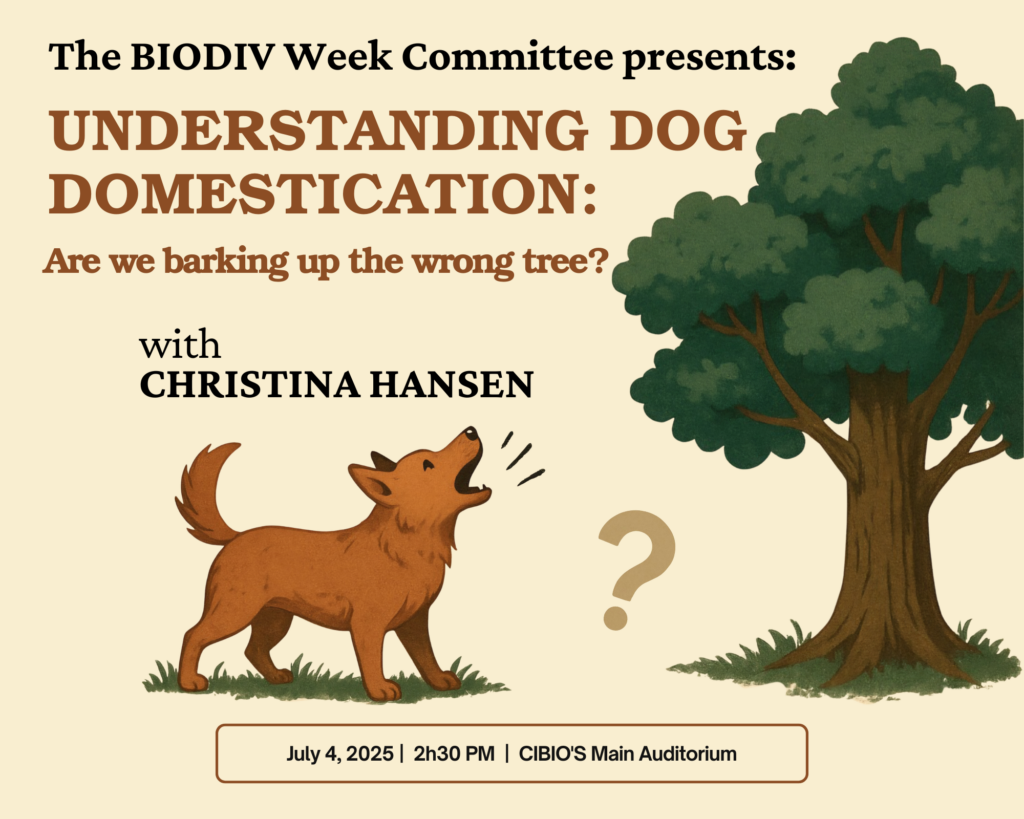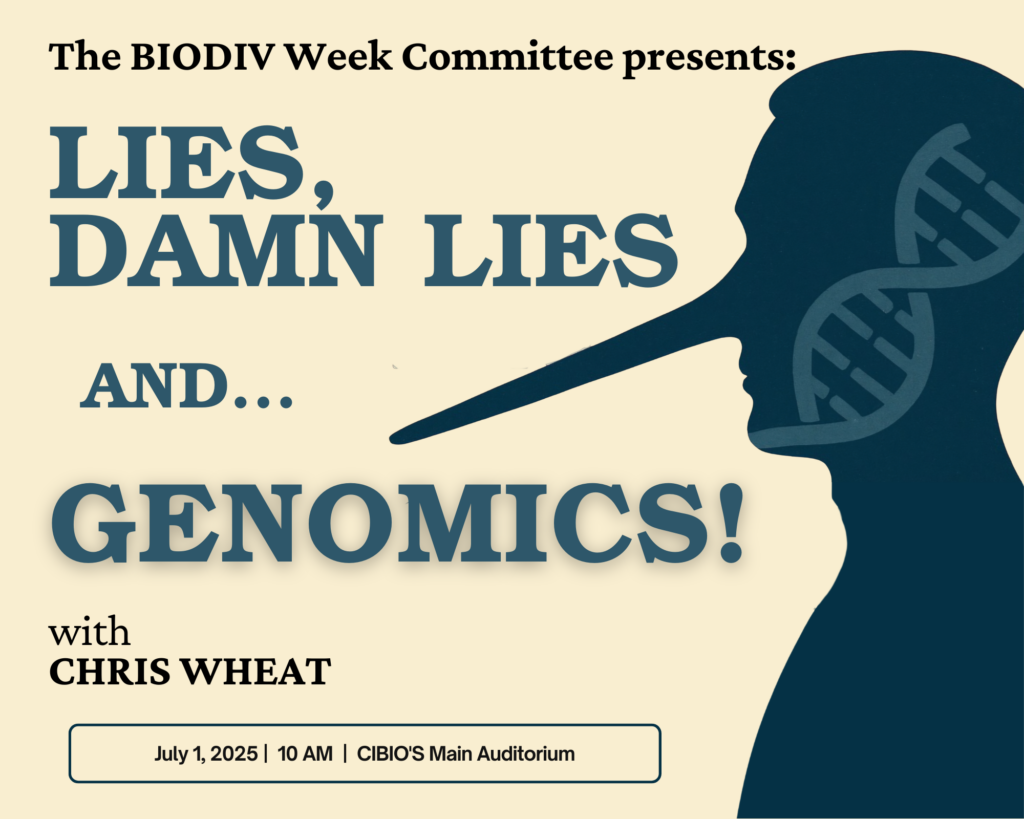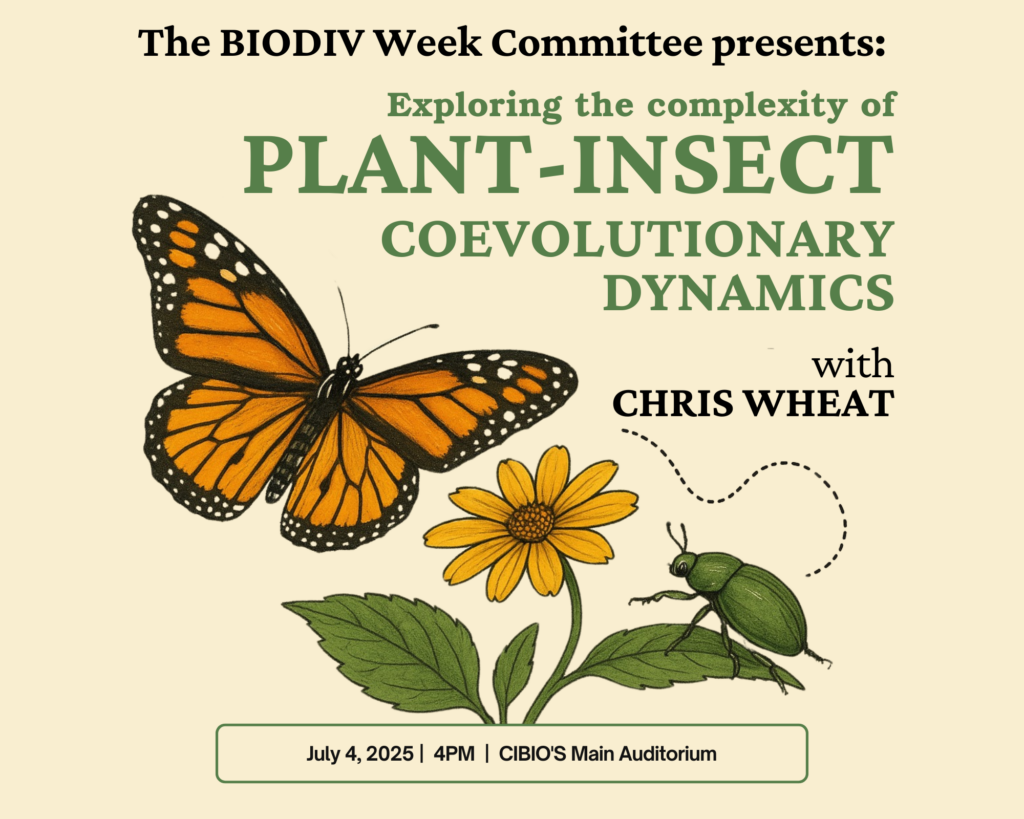Os membros da comissão de organização da BIODIV Week, uma iniciativa semestral dos estudantes do programa doutoral Biodiversity, Genetics & Evolution (BIODIV), convidam, anualmente, investigadores de renome internacional, refletindo os interesses e escolhas de toda a nossa comunidade estudantil, para partilharem o seu trabalho e experiência científica com a comunidade académica. Este ano, têm o prazer de receber a Professora Christina Hansen Wheat e o Professor Chris Wheat, entre os dias 30 de junho e 5 de julho de 2025.
O Professor Chris Wheat é investigador na Universidade de Estocolmo, com um percurso sólido na aplicação da genómica à compreensão dos mecanismos de adaptação, utilizando borboletas como modelo de estudo. A sua investigação centra-se na identificação e análise da variação genética responsável por alterações na aptidão, explorando estes processos em escalas tanto micro como macroevolutivas.
A Professora Christina Hansen Wheat é Professora Assistente na Universidade de Linköping, na área do comportamento animal. A sua investigação centra-se em como fatores como o ambiente social, a fisiologia, o clima e o habitat moldam o comportamento animal, tendo atualmente como foco a ontogenia do comportamento em cães como espécie modelo.
A nossa visão é proporcionar aos estudantes, sobretudo aos nossos colegas de doutoramento, uma oportunidade ímpar de conhecer e interagir diretamente com a Professora Christina Hansen Wheat e o Professor Chris Wheat.
Nesse sentido, a atividade que inclui uma breve visita guiada às instalações da FCUP e ao Departamento de Biologia (incluindo os laboratórios), seguida por uma sessão mais informal e interativa com os investigadores convidados.
Esta iniciativa poderá ser uma excelente oportunidade para promover a ciência, fomentar o diálogo interdisciplinar e incentivar o contacto direto entre os estudantes, desde e de outros programas doutorais com cientistas de destaque.
_______________________________________________________________________
Chris Wheat – Why are European butterflies so colorful?
Butterflies are amazing in many ways, one of which is being incredibly colorful. Why does color vary so much across species and sometimes even between the sexes, or among individuals of the same sex? Here I will explain how my research team has identified some of the evolutionary forces giving rise to the colorful butterflies in our backyards.
Christina Hansen – How did some wolves turn into dogs?
Dogs were domesticated from now extinct wolf populations 40,000-15,000 years ago, making them the only large carnivore and the first species to ever be domesticated. But how did dog domestication happen? Selection on behavioural traits, such as decreased fearfulness, likely started the domestication process. However, because behaviours leave no archeological record, we know little about which other behaviours might have been important during early dog domestication. One way to address this knowledge gap is to compare the behaviour of wolves and dogs, identifying similarities and thereby behaviours that have been conserved through evolutionary time. Using this approach on wolves and dogs hand-raised under identical conditions, I have uncovered some surprising clues as to which behaviours might have been part of the selection process leading to the dogs that sleep on our couches today. Which “typical dog behaviours” do you think might be original wolf behaviours?


